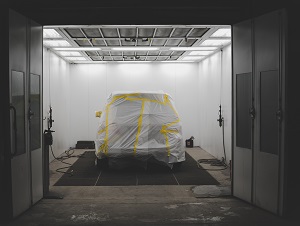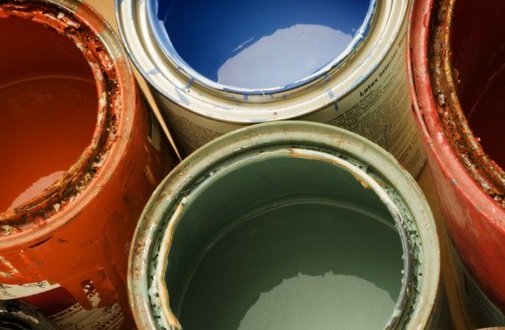Auto Body Repair
Auto body, collision repair and restoration facilities are all subject to a variety of environmental requirements.
New Hampshire has over 400 auto body, collision repair and restoration facilities, which are subject to a variety a local, state, and federal environmental requirements, especially those governing hazardous wastes and air emissions. Through compliance assistance, SBTAP encourages compliance with environmental requirements, and helps create a healthier environment for workers and the state of New Hampshire.
The Small Business Technical Assistance Program (SBTAP) can help auto body/collision repair/restoration facilities reduce their air emissions, water discharges and waste generation, while encouraging compliance with environmental regulations, and creating a safer workplace and a healthier environment.
 Spray Booth Requirements
Spray Booth Requirements
Spray painting must be performed within an enclosure that is maintained under negative pressure to capture over- spray on a filter technology that can demonstrate at least a 98% capture efficiency.
 Auto Body Shops and NH Regulated Toxic Air Pollutants
Auto Body Shops and NH Regulated Toxic Air Pollutants
Auto body shops are subject to Env-A 1400 Regulated Toxic Air Pollutants (RTAPs). However, they can be exempt if certain conditions are met.
 Managing Waterborne Paints
Managing Waterborne Paints
NHDES does not require auto body shops to switch to waterborne paints. While the Ozone Transport Commission, of which New Hampshire is a member, did recommend requiring auto body shops to switch to waterborne paints, New Hampshire did not adopt this recommendation.




